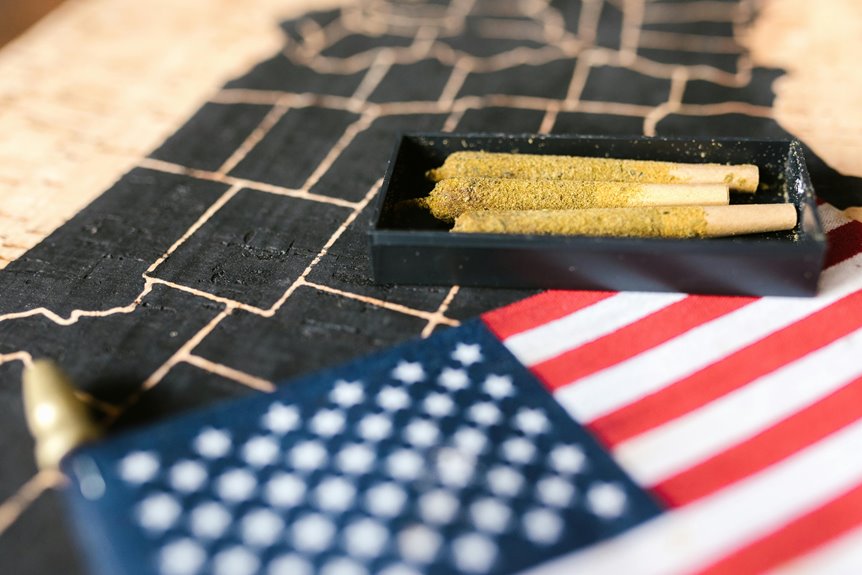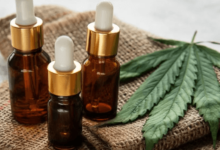
Is Cbd Legal in Usa
The legal status of CBD in the USA is complex and multifaceted. The 2018 Farm Bill plays a crucial role, legalizing hemp cultivation and defining regulations around CBD products. However, significant discrepancies exist between state laws, leading to varying degrees of legality and acceptance across the country. This creates uncertainties for consumers and businesses alike. Understanding the implications of these regulations is essential for navigating the CBD landscape effectively. What do these variations mean for you?
Overview of the 2018 Farm Bill
The passage of the 2018 Farm Bill marked a significant shift in federal policy regarding hemp and its derivatives, including cannabidiol (CBD).
This legislation legalized hemp cultivation and established a framework for CBD production, thereby enabling farmers to grow hemp for various applications.
The bill distinguished hemp from marijuana, facilitating broader access to hemp-derived products and promoting economic opportunities within the agricultural sector.
Federal Regulations on CBD
While the 2018 Farm Bill significantly altered the legal landscape for hemp and its derivatives, federal regulations on CBD remain complex and evolving.
The distinction between hemp and marijuana is crucial, as CBD derived from hemp (containing less than 0.3% THC) adheres to different classification standards than that from marijuana.
Consequently, ongoing regulatory developments continue to shape the legal status of CBD products in the United States.
State Laws and Variations
Variability in state laws regarding CBD creates a complex patchwork across the United States. Each state establishes its own regulations, impacting hemp classifications and the legal status of CBD products.
This inconsistency can lead to confusion for consumers and businesses alike, as some states embrace liberal policies while others impose strict limitations.
Navigating these diverse state regulations is essential for informed decision-making.
Key Considerations for Consumers and Businesses
Navigating the complexities of CBD legality requires consumers and businesses to consider several key factors.
Understanding CBD quality is paramount to ensure that products meet regulatory standards. Additionally, consumer safety remains a priority, necessitating thorough research and verification of product claims.
Businesses must stay informed about evolving laws to protect both their interests and the well-being of their customers in this dynamic market.
Conclusion
In conclusion, while the 2018 Farm Bill has established a federal framework for hemp-derived CBD, the legal landscape remains intricate due to significant state-level variations. An estimated 33% of Americans have used CBD products, highlighting the growing interest and potential market. This statistic underscores the necessity for consumers and businesses to remain vigilant and informed about the evolving regulations, ensuring compliance and safety in a diverse regulatory environment.






